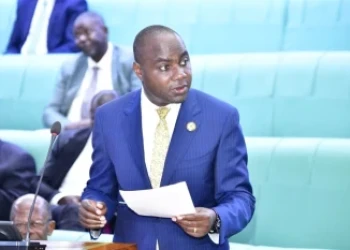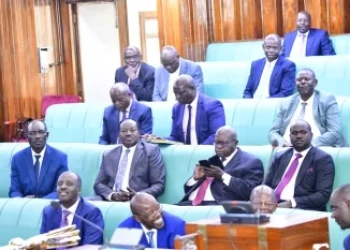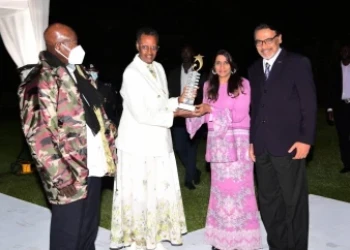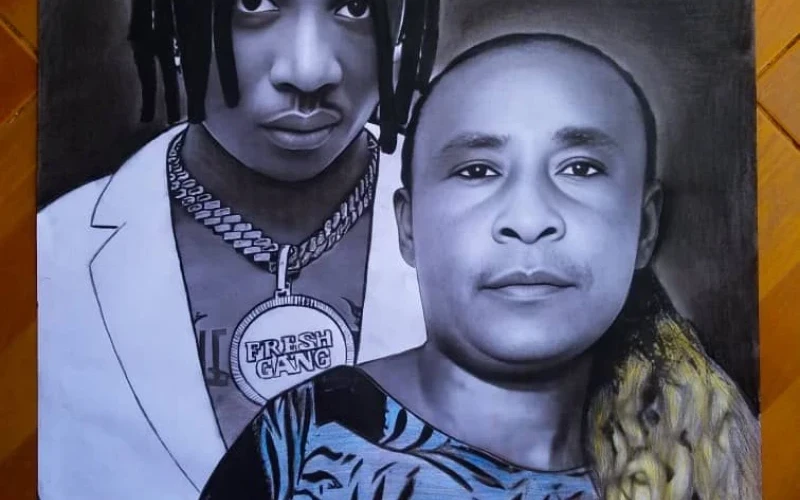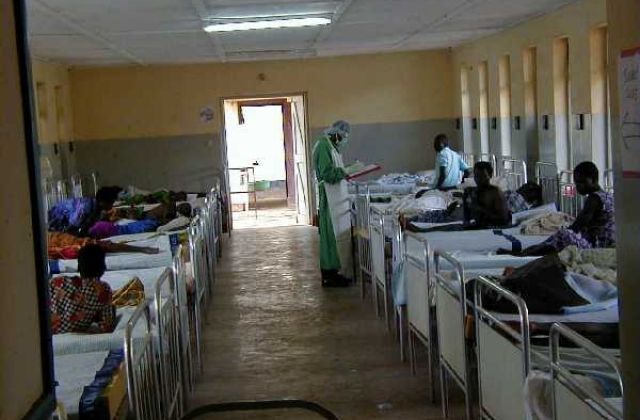
Medical personnel have announced that a patient who was isolated, in the Ebola ward at Lacor Hospital in Gulu district, after profuse bleeding, is suffering from a bleeding disorder, not the deadly Ebola.
Dr Cyprian Opira, the Executive Director of the hospital says preliminary tests conducted on the patient from the hospital indicate that she is suffering from lack of blood clotting factors, a condition that occurs when blood cannot clot properly.
The patient was isolated amid fear over the weekend after being transferred from Adjumani district with complaints of bleeding from her body openings.
According to the World Health Organization, the Human body needs blood proteins called clotting factors and blood cells called platelets. Normally, platelets clump together to form a plug at the site of a damaged or injured blood vessel. The clotting factors then come together to form a fibrin clot which keeps the platelets in place and prevents blood from flowing out of the blood vessel.
Dr Opira says the Hospital had a very difficult time managing the bleeding after the patient rejected blood transfusion on religious grounds. The patient is a follower of Jehovah's Witness, a religious group that bars its members from undertaking blood transfusions, donating or storing their own blood for transfusion.
Jehovah's Witnesses' literature teaches that rejecting transfusions is an indisputable religious stand and that those who respect life as a gift from God do not try to sustain life by taking in blood, even in an emergency. To them accepting transfusion is regarded as abandoning religious doctrines.
However, Dr Opira says that the bleeding has now subsided as the hospital waits for Ebola test results on samples taken to Uganda Virus Research Institute in Entebbe. He called for calm adding that health workers are well prepared to handle any emergency.
The Ebola fear came barely a month after the World Health Organisation-WHO confirmed an outbreak of Ebola in the Democratic Republic of Congo. According to the DRC health ministry, three people had died after testing positive to the virus in the remote Likati Health District.
Ebola is a rare but deadly virus that causes bleeding inside and outside the body. It spreads through contact with the skin or bodily fluids of an infected animal or person. Medical experts say that the virus wrecks the immune system and damages almost every organ. To date, the disease has no cure.
The last outbreak killed more than 11,000 when the virus swept through the West African states of Liberia, Guinea and Sierra Leone Last year. It remains the most severe outbreak of Ebola since the discovery of Ebola viruses in 1976.
Uganda has witnessed five Ebola outbreaks over the past 14 years which have been quickly contained through a combination of epidemiological luck and a well-coordinated response system operating at several levels of the health service.
The most devastating was the first Ebola outbreak in Gulu in 2000 which infected 425 people and killed 224.
Comments (0)
📌 By commenting, you agree to follow these rules. Let’s keep HowweBiz a safe and vibrant place for music lovers!




